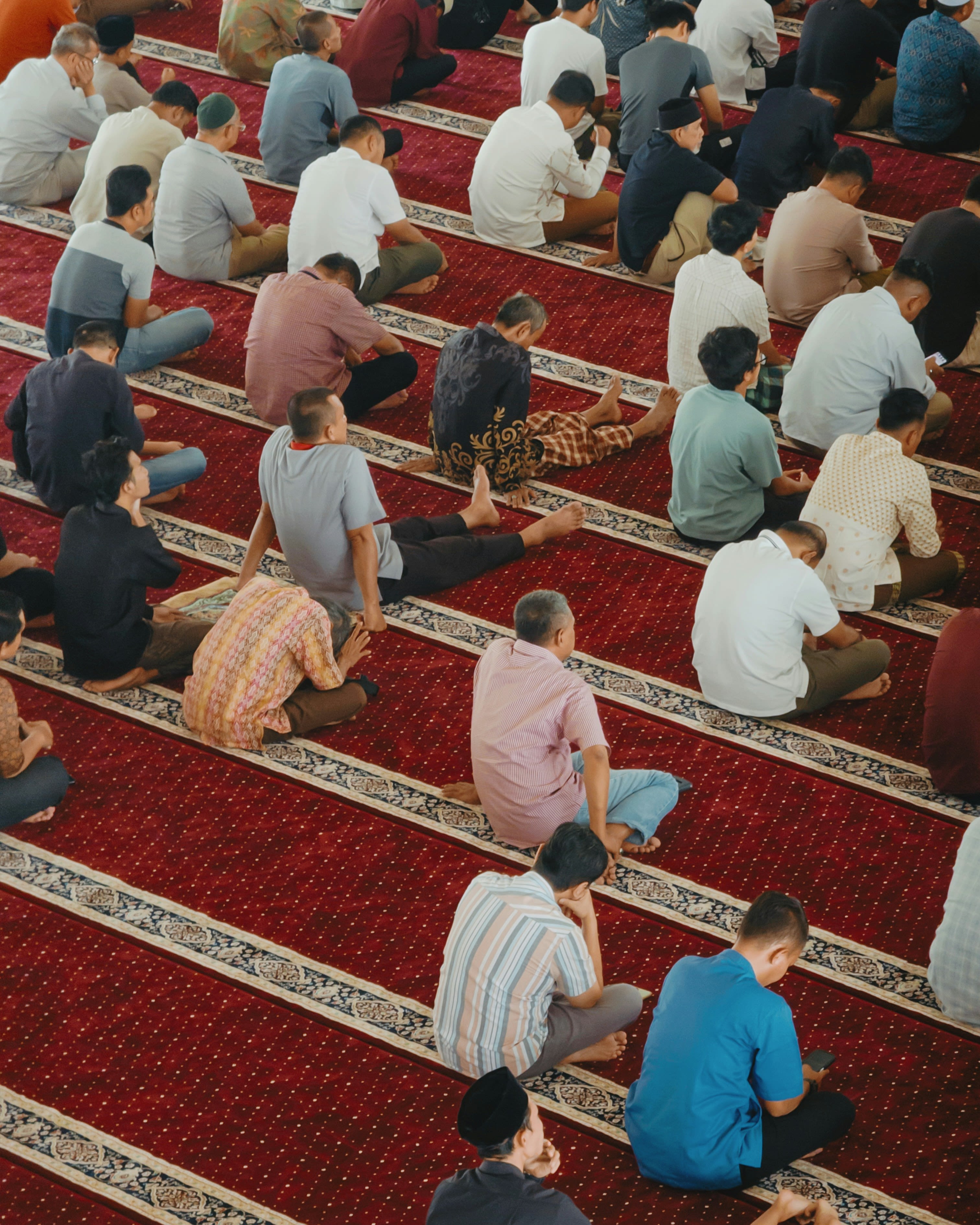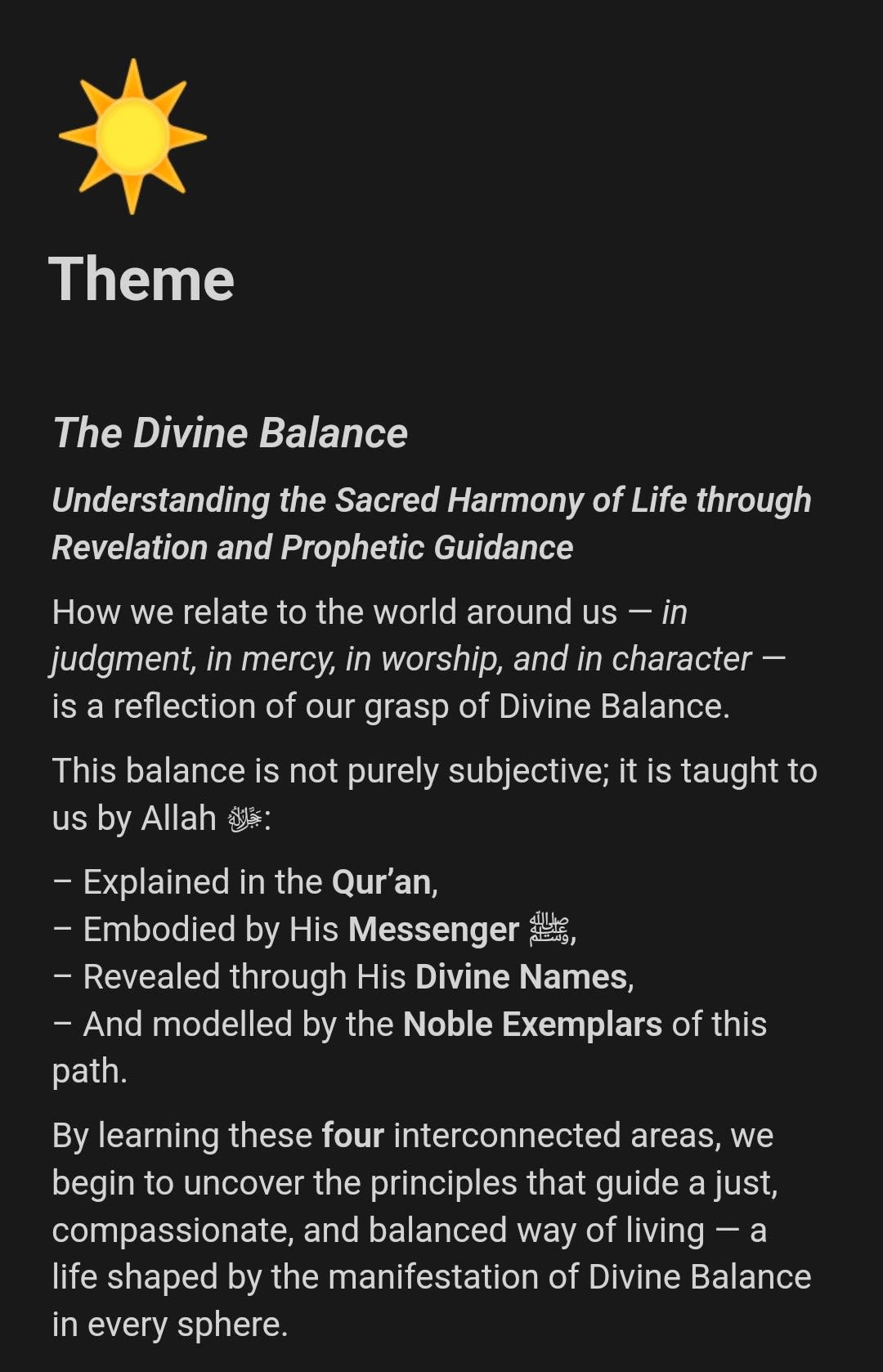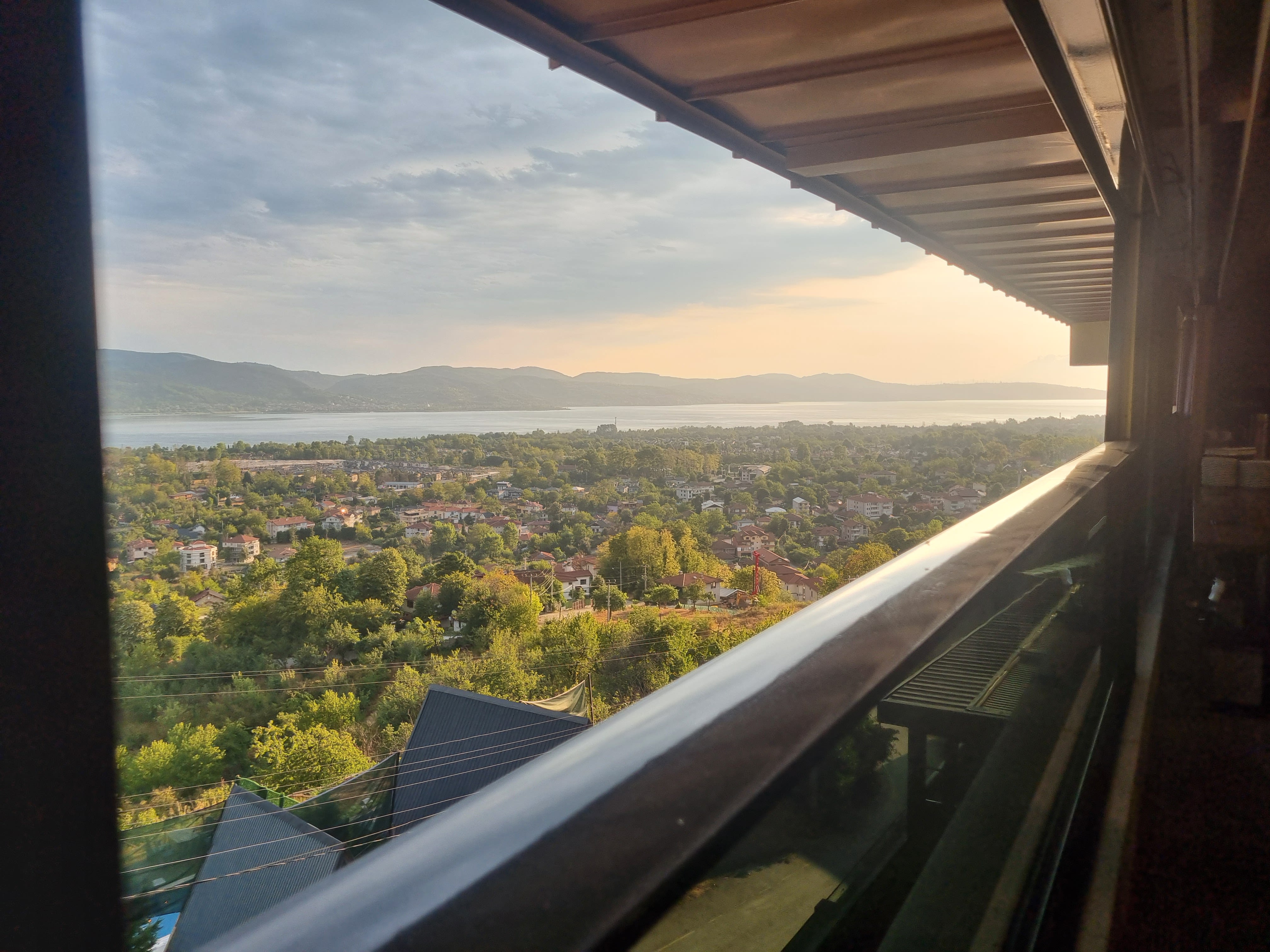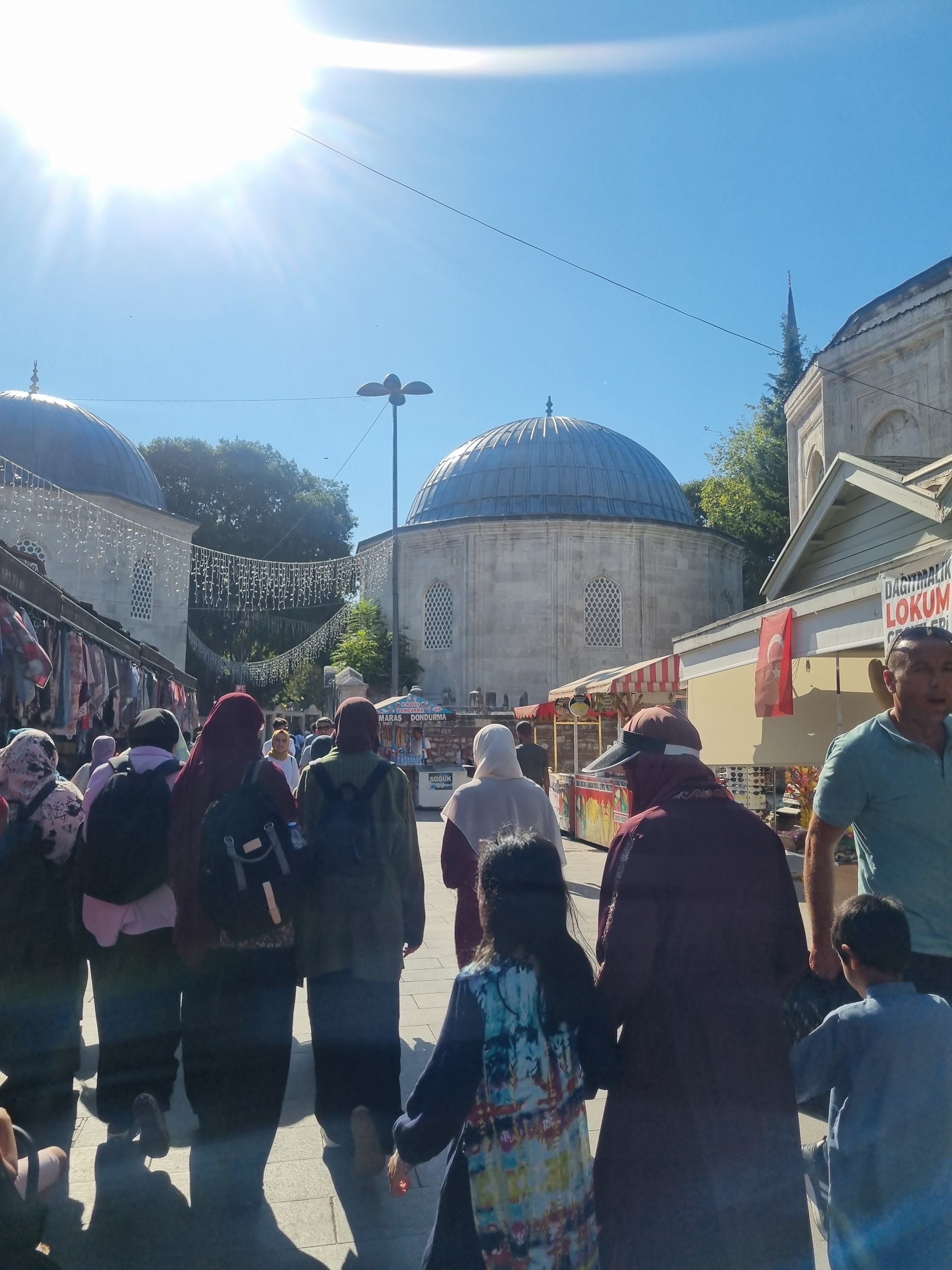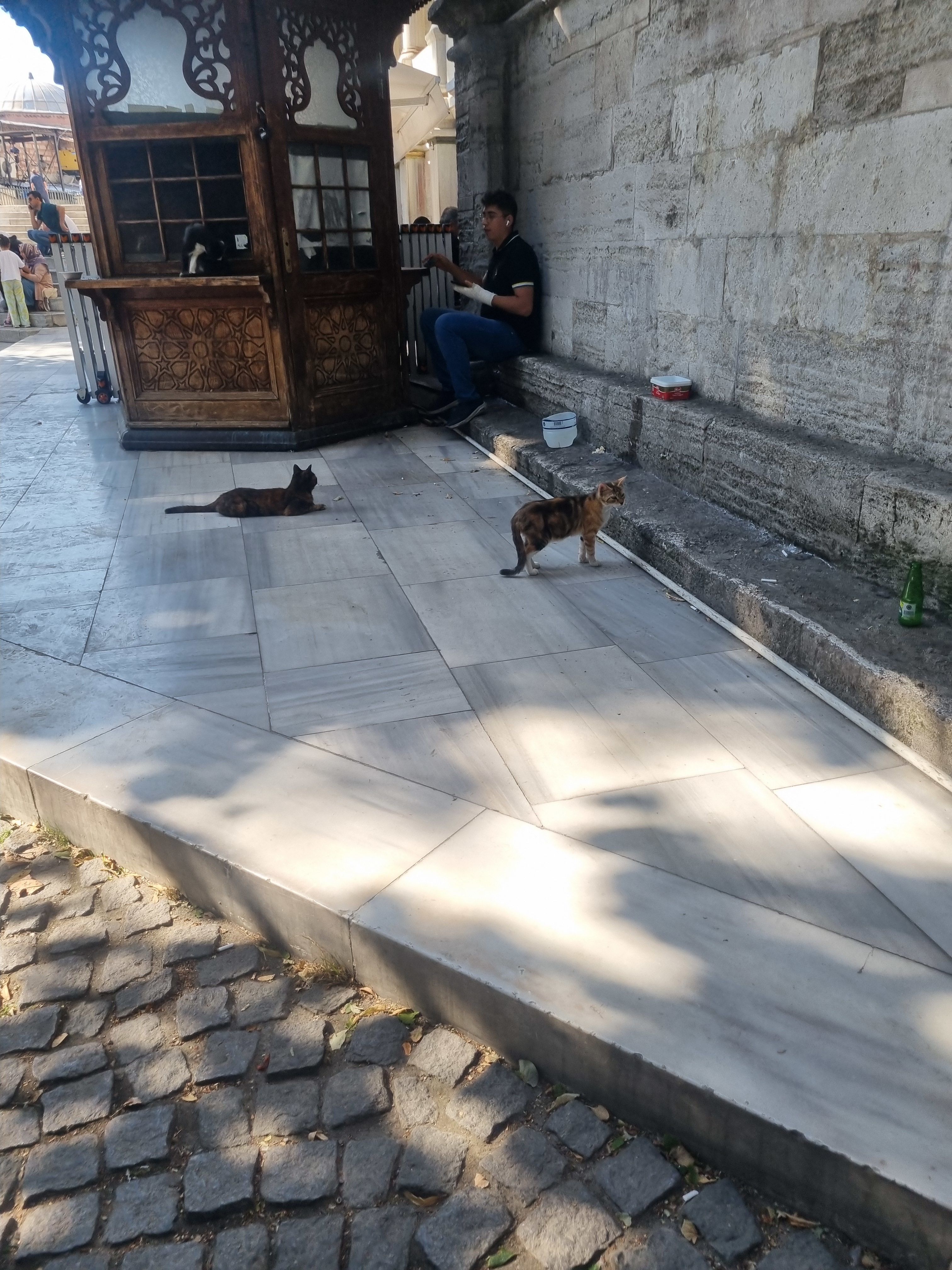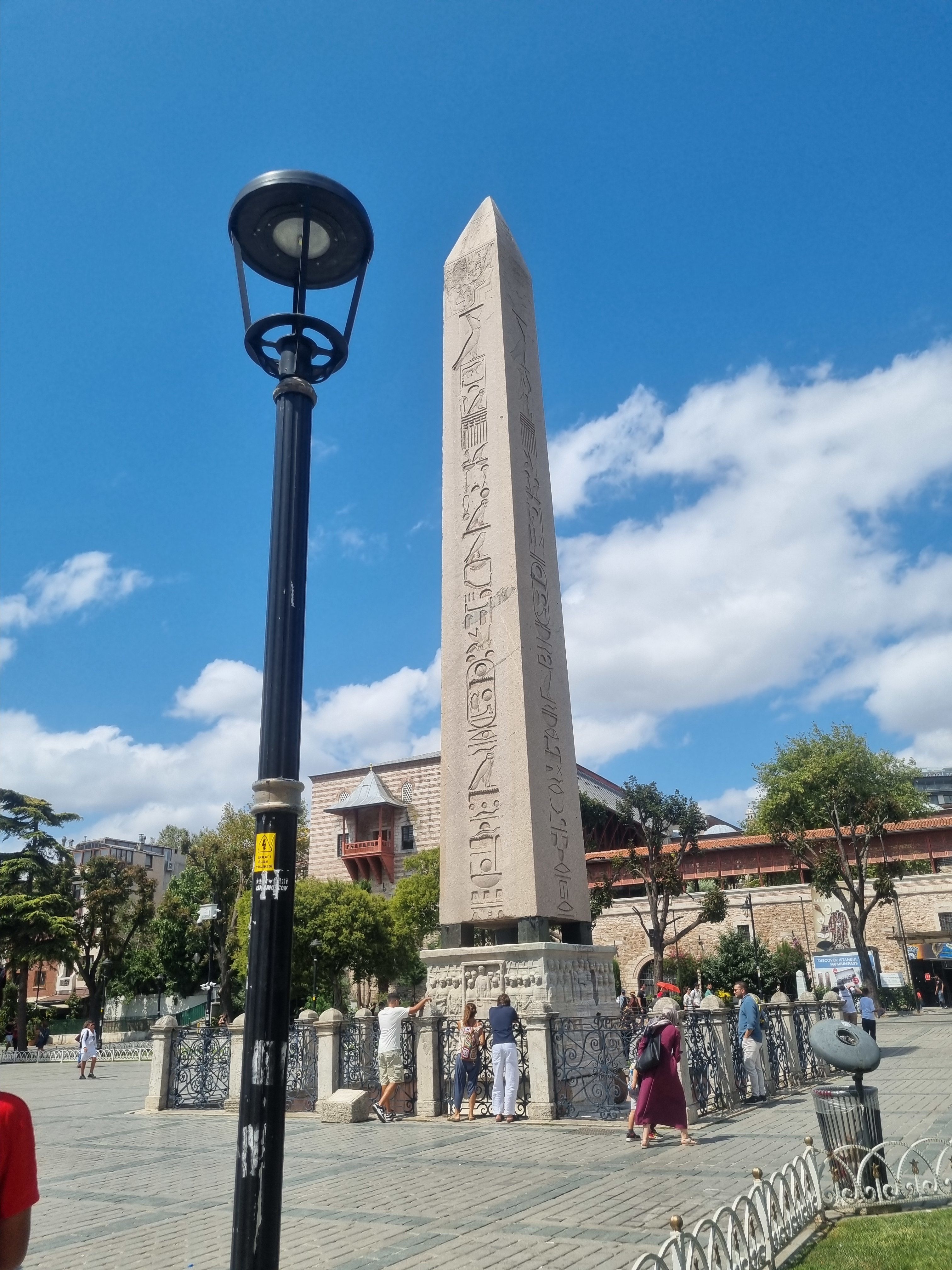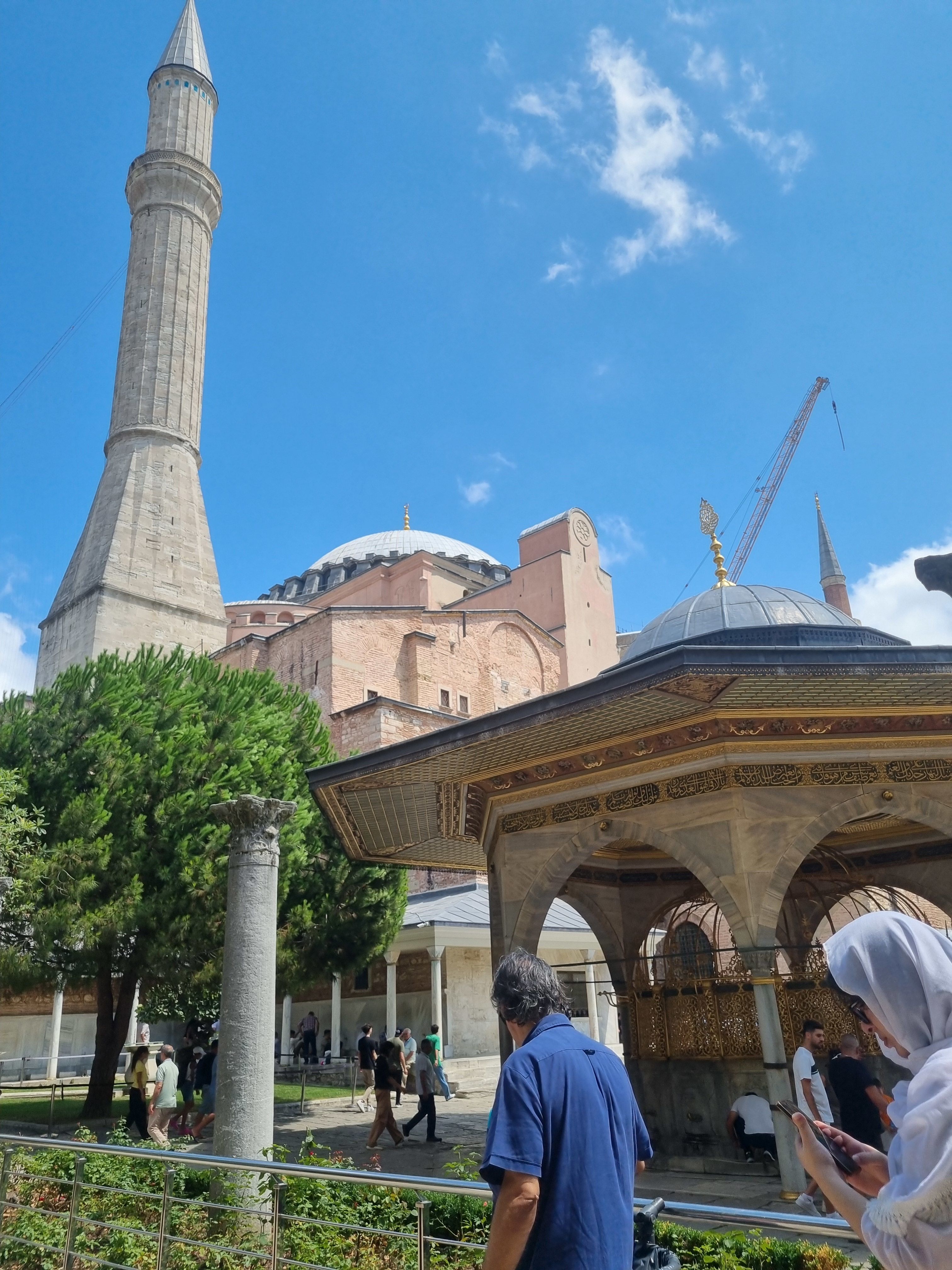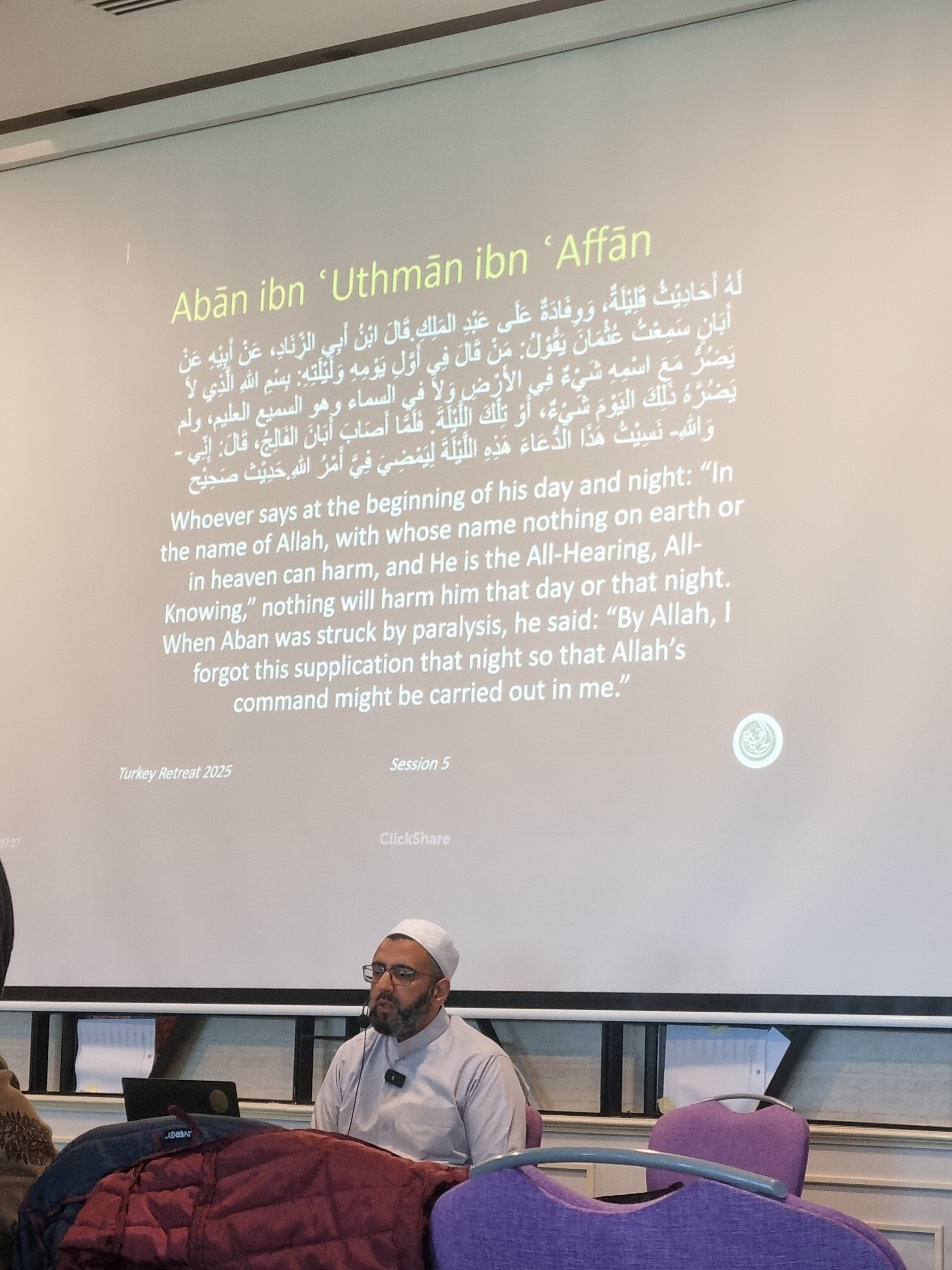Exploration of the spiritual self: attending a Halaqa in Turkey
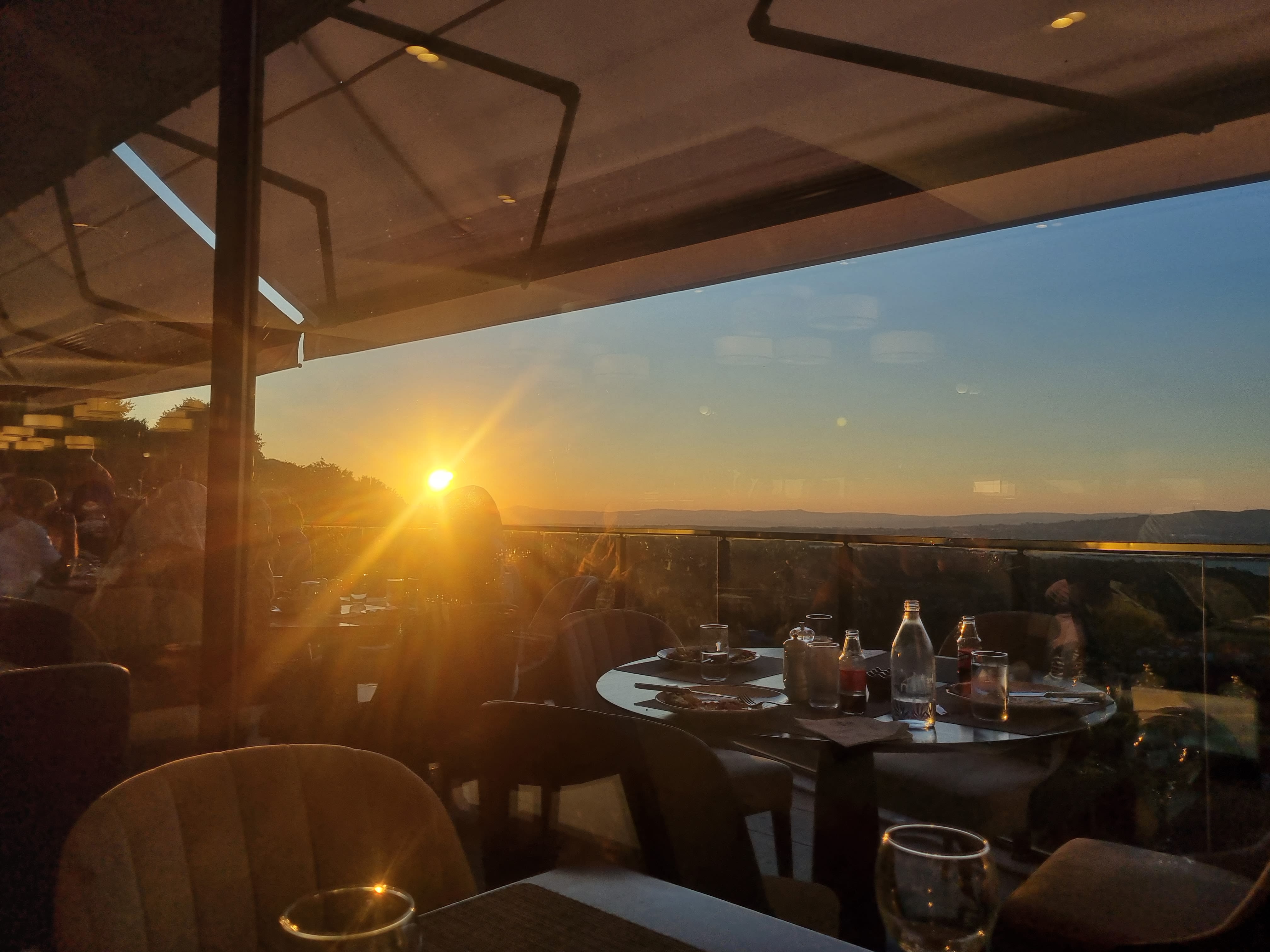
The word ‘halaqa’ literally translates to circle. This is the essence of what it is: circles of learning, a place where Muslims come together to seek knowledge and gain spiritual rejuvenation. It is a tradition that stems from the beginning of Islam 1400 years ago, when the Prophet Muhammad ﷺ would gather the early Muslims in Makkah at Dar al Arqam. This was the house of Abu Abdullah Arqam, wherein all the Muslims would gather to seek knowledge in secret, before the public announcement of Islam.
So the concept of the halaqa isn’t new, rather it is rooted in Islamic tradition. All over the world, Muslim communities come together to seek knowledge from esteemed scholars, and it takes place in various forms. As society changes and adapts, the way in which to provide this experience also has to. Nowadays, halaqa gatherings are often transformed into spiritual retreats, wherein attendees usually travel elsewhere and stay somewhere away from home to gain knowledge. In these retreats, it aims to act as a balance between Dunya (world) and Deen (religion), as alongside an intensive learning course are often leisure activities and excursions. The idea is to get away from your everyday life and seclude yourself with likeminded people seeking knowledge of your religion, to revive your soul, whilst also having a chance to relax and socialise with others.
The Backstory
This is where The Halaqa (the organisation) comes in. Beginning in 2002, the aim of The Halaqa was simple, as they stated on their Notion site: ‘to bridge the gap between English-speaking Muslims in the West and the living tradition of sacred knowledge’.
The Halaqa has successfully run for over 20 years, providing two retreats a year, in the winter in High Wycombe, where one of the early founders Sheikh Tanveer Hussain teaches, and abroad in an array of locations, most recently having been Sapanca, Turkey.
I was fortunate enough to be able to attend The Halaqa in Sapanca this year, which is why I have decided to write down my experience, so that hopefully it educates others about it and encourages them to go as well. The retreat lasted over the course of roughly six days in Sapanca, northwestern Turkey. It took place in the Cabir Deluxe Hotel, an amazing hotel high up in the mountains that helps provide the solitude you want from the retreat, but also a five-star service. Rooms were allocated based upon families, as I was with my mum we had our own room. And if you were a lone traveller, you were given a shared room with somebody of the same gender.
I got the chance to interview Sheikh Tanveer, to get a better understanding of The Halaqa and why it exists.
‘By placing students in the company of qualified scholars (‘Ulama), we offer access to those who exemplify the Prophetic character and uphold an unbroken chain of transmission back to the Messenger of Allah ﷺ.’ - The Halaqa
"My friends came up with the idea in 2001, in Damascus they ran a programme where students flew in from all over the world to attend a halaqa equivalent over the summer. We discussed the idea of holding something similar in the UK."
When asked about the importance of the halaqa in Islam, he said: “ It's a multifaceted question. Halaqa linguistically means a circle, like a link and a chain. It’s mentioned in the Sunnah of the Prophet ﷺ where people come together in a circle and recite Qur’an in the houses of God and the benefits of that. So, traditionally in Islam we’d always have a teacher, and students huddle around them, and this would form a link. A physical link, and a link via the teacher’s knowledge to his teacher and his teacher all the way back to the Prophet ﷺ . Links are really important.”
“If we go to retreats where people huddle together in a space, one benefit is you're able to learn things and devote yourself to them by moving yourself to a dedicated place where you can learn in the best environment you can possibly have. By coming together you form Suhba (companionship). This is really important because you talk, share ideas and experiences, you're able to let go of things and see other perspectives and seek guidance etc. So there are many benefits of coming together with like minded people, it is good for your mind, body and soul.”
“Here, these people have a communal interest in drawing nearer to God, and it creates unity, it puts people on the same page working to the same goal, that’s existed for a long time, obviously this (halaqa) is temporary, it does have the benefit of giving you another chance i.e. you derail and you come back.”
They aim to immerse students into the knowledge they are acquiring, to encourage companionship between attendees, and ultimately devote themselves in the remembrance of Allah (God) ﷻ and the Prophet Muhammad ﷺ.
Sheikh Tanveer said: “Each halaqa is a focused yet intensive programme held in handpicked locations, offering foundational Islamic learning and an invitation to embark upon a deeper path of religious seeking — whether locally or abroad.”
‘It is widely recognised that true knowledge is not merely acquired through books, but is transmitted heart to heart — in the presence of those who embody it. - The Halaqa
Why I attended
This is why I decided to attend. I haven’t travelled much in my life, and definitely not ever having the task of organising the trip, so naturally, I was nervous for the trip. One thing I knew is that I wanted my holiday to not just be a holiday, but rather a chance to learn and feel closer to my religion. That’s why when attending The Halaqa I was very excited to attend a trip that had a clear purpose: it was something that would reset and nurture my soul. And due to my apprehensiveness of organising the trip, attending the retreat was perfect as I had to do little to no organisation in terms of booking the trip, and although at the start I did feel awkward being with a group of people I didn’t know, by the end of the trip they definitely felt like family.
The theme of the retreat was: ‘The Divine Balance.’
Structure of the day
The day was structured to give students a balance between learning and leisure, and I personally think, to encourage a sense of discipline. I say this because the day started early at 4:45 am with pre-Fajr litanies, which were recitals of Dhikr (remembrance of Allah ﷻ) before the Dawn prayer (Fajr), and ended with the Night Prayer (Isha) and the recitation of Surah al Mulk of the Qur’an, which has been said by the Prophet Muhammad ﷺ to be a protection from the trials of the grave (that Muslims believe all people will go through).
The structure was split between the early morning, after breakfast/midday, and before and after dinner. It was a mix of Dhikr, prayer, lessons and Qur’an.
Being in the lessons was reminiscent of being in school, as we were all sat in rows with the teacher in front. It was a familiar feeling, and I enjoyed learning and taking notes in the different lessons. The themes of each lesson were vastly different, such as dipping into Islamic psychology and spirituality when studying ‘Marvels of the Heart’ by the acclaimed scholar Imam Ghazali, to studying the names of Allah ﷻ , as the teacher presented the relationship between Allah’s attributes and how we can embody them in our own everyday lives.
A big factor of The Halaqa was relaxing and having free time. With the biggest slot of free time scheduled between 1 and 5pm, attendees had the chance to essentially, do whatever they want. I partook in archery whereas others played football, the hotel provided segregated swimming pools that many people enjoyed, and there was even a games room for the children. So, safe to say there wasn’t a shortage of activities, and this was just within the boundaries of the hotel. On the weekend, attendees were offered to travel into central Sapanca and either do horse riding or go on a boat on the beautiful Sapanca Lake. I chose the latter and was in awe of the beauty of the lake, the pristine, crisp water was nothing like I had seen before. We also then got a chance to do some shopping in the market, which is always a plus! And honestly, the free time we were given I mainly just enjoyed spending time with my newfound friends. As we were only there for a few days and knew we may not see each other again for a long time, I loved getting together with my friends just to relax, chat, or explore the hotel.
Key takeaways
Having the retreat in another country in my opinion is a very good idea. There are many reasons for this, such as the fact that you get a holiday out of it, the chance to explore a new place where you may never have been before. And also, because it gives you the chance to completely detach from everyday life, which is what you want from this retreat. In a place unfamiliar to you, you get a chance to completely immerse yourself in the retreat, in what you're learning and in the country you're in.
Sheikh Tanveer noted: “It's a nice balance between religious environment and also really good standard hotels and services. That balance, especially coming from the West is needed, and remains attractive, having fewer distractions in terms of amenities. It's worth adding you get a holiday along with the retreat.”
“People take away different things depending on their experiences, what they've been through in life. I think people are able to heal and see alternatives to life. Ultimately, it all comes down to knowledge empowerment and Suhba. There are a number of takeaways but coming back to God and the Rasool ﷺ and then realising that I am maybe not doing as well as I should do but I intend to do better, I think that comes a long way.”
Honestly, my favourite part of the retreat was the people I met. The Suhba that is made in a halaqa like this is something that transcends traditional friendship, because it is friendship for the sake of Allahﷻ , brotherhood/sisterhood formed in the love of God and his Prophet ﷺ, in the desire to learn more about them and to nurture your soul.
My favourite lesson was hard to pick, but I will point out a few. In terms of teaching, I most enjoyed the ‘Divine Names’ lesson with Sheikh Talal Azeem, as he confidently and concisely delivered information in a very clear and structured way, and constantly taught how to integrate the attributes we had learnt about into our daily lives. I also enjoyed Sheikh Thaqib Mahmood’s lesson studying Imam Ghazali’s book. To be quite honest, I didn't always understand what he was saying as he has a very intelligent manner of speaking, but I knew I was not alone when another teacher said ‘when you attend Sheikh Thaqib’s lesson you know you need a dictionary after to look up all the words he used’. And the spirit he brought to his lesson, the passion he had in what he was talking about captivated me, and made me want to listen more. Finally, I extremely enjoyed Sheikh Tanveer Hussain’s lesson, on the Tabi’in (generation after the Companions of the Prophet ﷺ), mainly because of his more casual speaking style. He always had a story to tell and often would go a bit off track, but it was worth it because he has just a very easygoing and relatable way of speaking that especially catches the younger generation.
I also got the chance to interview a fellow attendee Taqwa, who has attended The Halaqa for many years. She said: “I went because it was an opportunity to learn but also to have fun. In all honesty all the teachers were really engaging and interesting. I really cannot choose!”
“From the retreat in general I really learned the value of making new friends. I made so many new friends and normally when I went to Halaqas I just hung out with people I knew and I didn't really go out of my way to make new friends.”
Theme of the retreat. Credit: The Halaqa.
Theme of the retreat. Credit: The Halaqa.
Structure of the day. Credit: The Halaqa.
Structure of the day. Credit: The Halaqa.
The beautiful view from our hotel. Credit: Yumna Iqbal.
The beautiful view from our hotel. Credit: Yumna Iqbal.
Spending time with friends. Credit: Yumna Iqbal.
Spending time with friends. Credit: Yumna Iqbal.
Sapanca Lake. Credit: Yumna Iqbal.
Sapanca Lake. Credit: Yumna Iqbal.
The view from Sapanca Lake. Credit: Yumna Iqbal.
The view from Sapanca Lake. Credit: Yumna Iqbal.
As per tradition of The Halaqa, we enjoyed a Grand Mawlid towards the end of the retreat. A Mawlid is a gathering of praise, wherein people recite Quran, read Dhikr, give spiritual reminders and sing poetry often accompanied with the Daf. This is something I extremely enjoy doing and it was a lovely way to round up the retreat. Attending a mawlid reverberates a sense of joy in the soul, as people gather to praise the Prophet Muhammad ﷺ , and my most fond memory from the whole retreat was actually doing a separate mawlid with my friends at midnight. This is because it was just something of pure ecstasy, as we sang and recited lines of love to the Prophet ﷺ .
Istanbul- a chance to be a tourist!
After the ending of the retreat, we had the opportunity to travel to Istanbul to unwind and explore. Although we didn't get as much time there as I had hoped, we were able to visit many of the most popular sites, such as the Blue Mosque and Hagia Sophia. I created some reels for my Instagram showcasing where we went. As it was included in our whole package, we spent two days in Istanbul unwinding and enjoying the scene.
Photo by Engin Yapici on Unsplash
Photo by Engin Yapici on Unsplash
Mango Plus, serving amazing and fresh juices! Credit: Yumna Iqbal.
Mango Plus, serving amazing and fresh juices! Credit: Yumna Iqbal.
Inside Hagia Sophia. Credit: Yumna Iqbal.
Inside Hagia Sophia. Credit: Yumna Iqbal.
Lots and lots of perfumes. Credit: Yumna Iqbal.
Lots and lots of perfumes. Credit: Yumna Iqbal.
Blue Mosque. Credit: Yumna Iqbal.
Blue Mosque. Credit: Yumna Iqbal.
Outside of the Blue Mosque. Credit: Yumna Iqbal.
Outside of the Blue Mosque. Credit: Yumna Iqbal.
Eyupsultan. Credit: Yumna Iqbal.
Eyupsultan. Credit: Yumna Iqbal.
Cats! Credit: Yumna Iqbal.
Cats! Credit: Yumna Iqbal.
Obelisk of Theodosius. Credit: Yumna Iqbal.
Obelisk of Theodosius. Credit: Yumna Iqbal.
Outside Hagia Sophia. Credit: Yumna Iqbal.
Outside Hagia Sophia. Credit: Yumna Iqbal.
Inside of a fabric shop. Credit: Yumna Iqbal.
Inside of a fabric shop. Credit: Yumna Iqbal.
Another view of the Blue Mosque. Credit: Yumna Iqbal.
Another view of the Blue Mosque. Credit: Yumna Iqbal.
Lesson with Shaykh Tanveer. Credit: Yumna Iqbal.
Lesson with Shaykh Tanveer. Credit: Yumna Iqbal.
Other retreats
Whereas a halaqa itself is not something new, turning them into spiritual retreats is something more of modern society. The Halaqa (organisation) has been around since 2002, whereas there are also many other providers now such as Revival Retreats, The Lantern Initiative, Loves Pilgrim tours and many more.
Revival Retreats began in the summer of 2022, after freelance video producer Zoheb documented his work travelling and creating content for different projects in the Muslim world. He would often stay in the countries he worked in, spending time in the local communities and posting about his experiences on social media. This led to people asking how they could too experience this, with Zoheb saying: “The concept began as a response to those people asking for this experience.”
“I started realising that travel and connecting people to local communities has a very transformational experience. We want to take people to Muslim lands and connect them with the lands of our spiritual heritage.”
“We’re connecting them to the Islamic tradition and reviving an experience of travelling for knowledge and an increase in spirituality, such as the likes of Ibn Battuta - travel for them was a command from Allah ﷻ in the Qur’an to go and travel the earth and learn about Allah and His land.”
On a slight side note- I recently read an article about Islamic consumerism, and the writer was presenting how features of Islam are used to promote overconsumption and heedless spending, to which I can somewhat agree. But one point he did make was about attending retreats like this, saying how people spend thousands of pounds attending retreats in Muslim countries to learn about their own history, and how it is ‘awkward’ with a scholar attending the trip to give spiritual reminders. He gives leeway to students of knowledge attending the trips, but not the average person, saying rather to buy books on Islamic history and knowledge instead. And for the most part of what he is saying, I understand, but I don't think it is entirely a waste attending retreats like this. People like to travel, and I think being able to combine your holiday with learning is extremely beneficial. Instead of spending those thousands just going to sit on a beach or something, you are actually seeking knowledge and getting together with like-minded people who also want to. And, you're helping a Muslim business and funding the future for more trips like these. I believe the average Muslim can attain a lot of good from a retreat like this, and at the end of the day, it's more valuable as you get two sides to the trip: the holiday you want and the spiritual reset you seek. And best of all, you come away from the trip wanting more, wanting to learn more from those teachers, wanting to learn more of the history of where you went etc.
Speaking to Revival Retreats founder Zoheb about this, he said: “There’s two elements between the tourist experience and Islamic retreat of learning . Reality is, the demographic we serve of Westerners, they generally have high standards, so we have to consider these things. Putting their comfort first, regardless, people are going to travel anyway. We just provided a service that if you travel with us, it's intentional travel, everything is going to be arranged for you. Actions are based on intentions and we should be very intentional about everything that we do. And we are basing our itinerary around five prayers and supporting local communities and families.”
“Providing an environment for people to explore and also learn their faith. We don't encourage people to use us as the vehicle of spiritual journey, we are an experience that will revive something within you, hence why it's called Revival Retreats.”
Spiritual retreats are not exclusive to Islam, and other religions do them too, such as Christianity. Often taking place at retreat houses or monastic communities, they focus on spiritual growth, prayer and seeking God through means such as Scripture study, discussion and art.
Why Muslims should take these kinds of trips
Sheikh Tanveer said: “They’re good because you're in one particular place with like minded people, it helps you focus on the task, saves you from distractions and you can also get lots done in a short amount of time, which helps people get back on track again and create a sort of momentum which helps them commit to things again going forward!”
In summation, The Halaqa retreat in Turkey was an amazing experience, and one that I most definitely want to attend again. The overarching reason for this is because of the community that is there, the one that invites you in and wants you to stay once you’ve attended the retreat. Many of the people I met are people that I am confident I will stay in touch with for years to come. And this was a key lesson echoed throughout the retreat: forming good suhba (companionship) with those around you, which I truly believe did happen as a result of it. Although I may not see the people I met there often, when we do meet there is a sense of joy in having a sort of secret connection of knowing each other through The Halaqa.
The teachers were also captivating and extremely kind, there’s no feeling of separation or superiority with them, they all attended with their families and were so open and happy to answer questions and talk.
Attending The Halaqa truly feels like you’re in another world- you forget all your worries and are able to fully immerse yourself in the remembrance of Allah ﷻ and Prophet Muhammad ﷺ. Having a balance between your free time and lessons makes the trip very beneficial, as you’re receiving spiritual nourishment and rejuvenating your faith, while also having a nice holiday. I would recommend The Halaqa in particular as their retreat is a lot cheaper compared to other providers, with it roughly being £1400 with flights, food, accommodation, airport transfers all included. Others I have seen are closer to the £2000 mark, or do not include flights for a similar price to The Halaqa’s.
Please check out the reels I made on Instagram regarding my trip @a.karzam.
You can learn more about The Halaqa here: www.halaqa.org.
